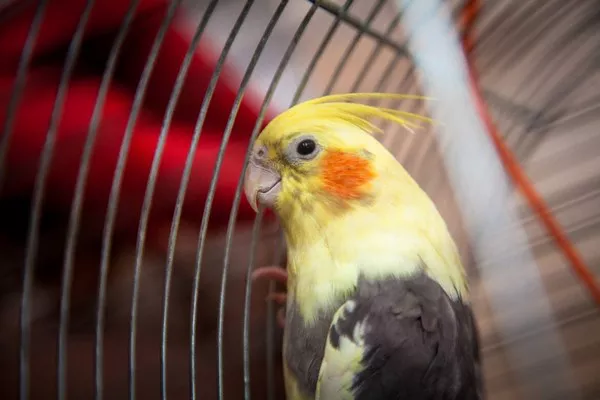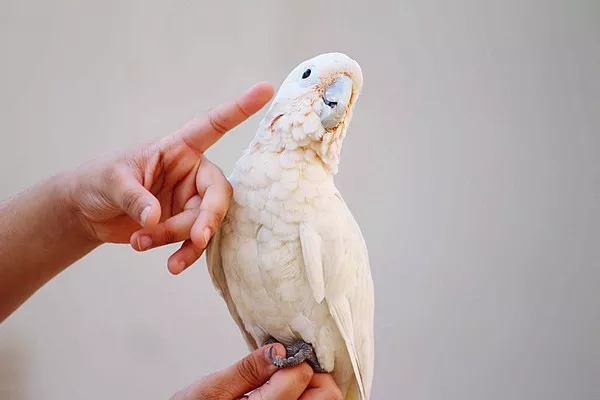Guinea pigs, also known as cavies, are beloved small pets that are popular for their friendly nature and unique characteristics. As a pet owner or prospective guinea pig caretaker, it is essential to understand their needs to ensure they live a healthy, happy life. One key aspect of guinea pig care involves understanding their sleep patterns.
Sleep plays a vital role in the health and well-being of guinea pigs, influencing their physical and emotional development. In this article, we will explore how long guinea pigs sleep, their sleep behavior, and tips on ensuring they get the right amount of rest. We will also cover factors that influence their sleep patterns and how to recognize any signs of sleep disturbances that may indicate health issues.
1. Guinea Pig Sleep Patterns
Before diving into how long guinea pigs sleep, it’s important to understand their sleep patterns. Guinea pigs, unlike humans who sleep at night, are crepuscular animals. This means they are most active during the twilight hours of dawn and dusk. They typically sleep in shorter bursts throughout the day and night.
Guinea pigs do not have long, continuous periods of sleep like humans. Instead, they sleep in what is known as polyphasic sleep, which means they take multiple short naps throughout the day and night. A guinea pig’s total sleep time will vary depending on several factors, including age, health, and environmental conditions.
Guinea Pig Sleep Duration
On average, guinea pigs sleep for about 4 to 6 hours a day. However, this total sleep time is spread out over the course of a 24-hour period. Guinea pigs often take multiple naps, and these naps can last anywhere from 10 minutes to an hour or more.
Young guinea pigs, elderly guinea pigs, or those that are ill may require more sleep. Generally, healthy adult guinea pigs may sleep less than this range, as they are more active and alert during their waking hours.
Sleep Cycle
A guinea pig’s sleep cycle is different from that of humans. While humans go through a series of stages of sleep, including deep sleep (REM) and light sleep, guinea pigs sleep in a more light and intermittent fashion. Their sleep is often lighter and quicker, allowing them to stay alert and responsive to their environment, which is a natural survival mechanism.
Guinea pigs are prey animals in the wild, meaning they need to be cautious and aware of potential threats, even while resting. As a result, they sleep in short bursts, usually staying light enough to quickly wake up if they sense danger.
Day vs. Night Sleep
Guinea pigs do not have a strict “nighttime sleep” pattern, as their sleep schedule is influenced by light levels rather than a natural circadian rhythm like that of humans. While guinea pigs may nap during the day, they will also sleep at night, particularly if the room is dark and quiet.
However, guinea pigs are not fully nocturnal, meaning they will sleep less during the nighttime hours. Their sleep is divided, with some naps occurring in the early morning and evening, and others taking place at different times throughout the day. This is why it’s crucial to understand their need for constant access to food, water, and a quiet resting environment throughout the entire 24-hour period.
2. Factors Influencing Guinea Pig Sleep
Several factors can affect how long and how well guinea pigs sleep. Understanding these factors will help pet owners provide the ideal sleeping environment for their furry companions.
Age
Just like people, guinea pigs’ sleep patterns change with age. Baby guinea pigs, known as pups, need more sleep than adults. As they grow and develop, they may start sleeping less and becoming more active during their waking hours. Baby guinea pigs typically sleep for 6 to 8 hours per day, with sleep periods becoming shorter as they approach adulthood.
Older guinea pigs may also sleep more. As guinea pigs age, they may become less active and require more rest. It is important for pet owners to monitor the sleep habits of elderly guinea pigs and ensure they are not experiencing health issues that might cause them to sleep excessively or restlessly.
Health and Well-Being
A guinea pig’s health plays a crucial role in its sleep patterns. If a guinea pig is feeling unwell or stressed, it may either sleep more than usual or have trouble falling asleep. Common health issues such as respiratory infections, pain, or digestive problems can affect how long and how peacefully a guinea pig sleeps.
A guinea pig that is ill may exhibit signs of lethargy, such as sleeping more or staying in one place for long periods. In contrast, guinea pigs that are stressed or anxious may have trouble relaxing enough to sleep.
Diet
A guinea pig’s diet can have an impact on its sleep. A well-balanced diet, rich in hay, fresh vegetables, and vitamin C, supports a guinea pig’s overall health and promotes restful sleep. On the other hand, a poor diet or irregular feeding schedule can lead to digestive issues or discomfort, making it harder for guinea pigs to rest properly.
Ensuring that guinea pigs have access to fresh food and water throughout the day is essential for their well-being and sleep. Guinea pigs that are hungry or dehydrated may be more restless and have trouble sleeping.
Environment and Cage Setup
The environment in which a guinea pig lives has a significant influence on its sleep patterns. Guinea pigs need a quiet, comfortable, and secure environment in which to sleep. Their cage should be placed in a calm area of the house, away from loud noises, bright lights, or sudden temperature changes.
Temperature also plays a role in guinea pig sleep. Guinea pigs prefer a stable, cool temperature between 65°F and 75°F (18°C to 24°C). A cage placed in an area that is too hot or too cold may cause stress or discomfort, leading to poor sleep quality.
The bedding in the guinea pig’s cage should be soft and comfortable, and the space should be large enough for them to move around and stretch. A cage that is too small or cramped can lead to restless sleep, and guinea pigs may feel anxious in such an environment.
Social Interaction
Guinea pigs are highly social animals and tend to sleep better when they have companionship. Having a cage mate can provide comfort, reduce stress, and improve sleep quality. Guinea pigs are less likely to feel alone or vulnerable when they have another guinea pig to snuggle with during naps. However, it is important to ensure that the guinea pigs get along and are not fighting, as aggressive behavior can disturb their sleep.
If you only have one guinea pig, consider providing them with regular social interaction and attention to reduce feelings of loneliness, which can lead to stress and disturbed sleep.
Exercise and Mental Stimulation
Guinea pigs need physical and mental exercise during the day. Providing a space for your guinea pig to explore and engage in activities will help tire them out and make them more likely to sleep soundly at night. Playtime, exploration, and interactions with other guinea pigs can help your pet expend energy and experience mental stimulation, leading to better rest.
Too much energy buildup without an outlet may result in restlessness or excessive nighttime activity, which could disturb their sleep.
3. Understanding Guinea Pig Sleep Behavior
Guinea pigs have unique sleeping behaviors that are different from those of many other pets. It is important to understand these behaviors to ensure they are getting the appropriate amount of rest.
Sleeping Postures
Guinea pigs tend to sleep in a variety of positions. Some of the most common sleeping postures include:
Curled up in a ball: This is a common sleeping posture in which the guinea pig curls its body into a ball, keeping its face and feet hidden. This posture indicates that the guinea pig feels safe and secure.
Stretched out: Guinea pigs may also sleep stretched out on their side or stomach. This is often a sign that the guinea pig is comfortable and feels relaxed.
Resting with eyes half-open: Guinea pigs may sleep with their eyes partially open, particularly when they are resting lightly or in a state of alertness. This behavior allows them to be aware of their surroundings while still getting some rest.
Sleep During the Day vs. Night
Although guinea pigs are crepuscular, their sleep patterns can shift depending on their environment and the amount of light they are exposed to. Guinea pigs may rest during the daytime in response to natural or artificial light levels, but they tend to be more active and alert during the evening and early morning.
It is important to keep the guinea pig’s environment consistent and not expose them to loud or bright conditions, especially during their natural sleeping periods.
4. How to Ensure Proper Sleep for Your Guinea Pig
Ensuring that your guinea pig gets proper rest involves creating an ideal sleeping environment and addressing their physical and emotional needs. Here are some tips to help improve your guinea pig’s sleep quality:
Provide a quiet environment: Place your guinea pig’s cage in a calm and quiet area of your home, away from loud noises or distractions.
Ensure a comfortable sleeping area: Use soft, clean bedding that is safe for guinea pigs, such as fleece or paper-based bedding.
Maintain a stable temperature: Ensure the room temperature is within the ideal range of 65°F to 75°F (18°C to 24°C) to prevent temperature-related stress.
Offer companionship: If possible, provide your guinea pig with a cage mate to reduce feelings of loneliness and help them feel secure during sleep.
Ensure regular exercise: Allow your guinea pig time to exercise, explore, and interact with you during the day to prevent excess energy from interfering with their sleep.
Follow a consistent feeding schedule: Make sure your guinea pig has regular access to fresh food and water throughout the day, as hunger or dehydration can interfere with sleep.
Conclusion
Guinea pigs sleep for approximately 4 to 6 hours per day, but this sleep is spread out over several short periods throughout the day and night. As crepuscular animals, guinea pigs are most active during the early morning and evening hours, making it crucial to provide them with a calm and comfortable environment for their naps.
Factors such as age, health, diet, and environmental conditions all play a role in how long and how well guinea pigs sleep. By ensuring your guinea pig has a peaceful, secure space, proper nutrition, and social interaction, you can help them enjoy restful sleep that supports their overall health and happiness.
Understanding the sleep behavior of guinea pigs is key to being a responsible pet owner. By following the tips outlined in this article, you can create the perfect environment for your guinea pig to rest and thrive.
Related Topics:






















